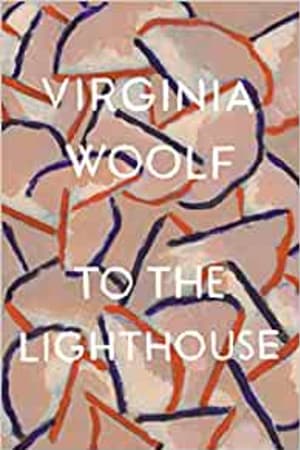Genre Fiction
- Publisher : Harcourt Brace Jovanovich; First edition
- Published : 27 Dec 1989
- Pages : 209
- ISBN-10 : 0156907399
- ISBN-13 : 9780156907392
- Language : English
To the Lighthouse
"Radiant as [To the Lighthouse] is in its beauty, there could never be a mistake about it: here is a novel to the last degree severe and uncompromising. I think that beyond being about the very nature of reality, it is itself a vision of reality."-Eudora Welty, from the Introduction.The serene and maternal Mrs. Ramsay, the tragic yet absurd Mr. Ramsay, and their children and assorted guests are on holiday on the Isle of Skye. From the seemingly trivial postponement of a visit to a nearby lighthouse, Woolf constructs a remarkable, moving examination of the complex tensions and allegiances of family life and the conflict between men and women.
Readers Top Reviews
E. A. Hagsally seagu
It's taken 50 years to read this book after struggling with The Waves at school. It is wonderful at capturing our minds being torn in different directions, especially women struggling between an instinct to support others and a deep desire for self expression that requires selfishness with one's time. Woolf's descriptive powers are breathtaking. There is a line about dawn breaking that so perfectly describes a tiny transluscence that appears inside a wave it is as if it is being observed by a mermaid. Gripping, tragic, hopeful.
Anxius
This was my first Virginia Woolf novel. I was expecting a Joycean stream-of-consciousness effort but in fact it was quite an easy read. Woolf's inner-voice style may have been shockingly modern at the time, but it's not at all difficult by the standards of today. The book does a great job of creating an atmosphere of languid, privileged, middle-class boredom, while remaining interesting for the reader with its insights into the thoughts of characters from a disappeared era. It's a bit like wandering around a country house owned the the National Trust or English Heritage and trying to put yourself into the minds of the people who lived there.
Prabhpreet K.David B
This version only includes 'Part 1 The Window' out of a novel which has three parts. It is not a complete version and that is not mentioned anywhere by the seller as far as I know. Something like this should be mentioned on the cover page of the book, something like a quick note to say 'Part 1'. I have had to buy the whole novel and now I just have this lying around. I would not recommend this to anyone as it is a waste of money. You onlu get Part 1 when you should be getting the whole book.
Kate A.Edwin Relf
I trudged through this book and made myself finish it. The prose was lyrical and some passages were stunning, but the story had no plot and the characters lacked depth. Inner dialogue was written in stream-of-consciousness style -thoughts were disjointed and nonsensical. See example below of Mr. Ramsay's inner dialogue. The characters often think about the weather, who should marry whom, and how beautiful and charming the 50 y/o Mrs. Ramsay is. I recommend reading the popular passages on the internet and skipping the book. "For if thought is like the keyboard of a piano, divided into so many notes, or like the alphabet is ranged in twenty-six letters all in order, then his splendid mind had one by one, firmly and accurately, until it had reached, say, the letter Q. He reached Q. Very few people in the whole of England ever reach Q. Here, stopping for one moment by the stone urn which held the geraniums, he saw, but now far, far away, like children picking up shells, divinely innocent and occupied with little trifles at their feet and somehow entirely defenceless against a doom which he perceived, his wife and son, together, in the window. They needed his protection; he gave it them. But after Q? What comes next? After Q there are a number of letters the last of which is scarcely visible to mortal eyes, but glimmers red in the distance. Z is only reached once by one man in a generation." -Mr. Ramsay
William MacDuff
What can I say about what is generally considered Woolf's finest work that hasn't been covered at length by feminists and other literary critics? It is one of the great books of the 20th century. The use of run-on sentences is a bit daunting at first, but by the end of the first or second chapter I had gotten used to the style and found the content easy to follow. Those who like the work of Gertrude Stein or James Joyce probably already know TO THE LIGHTHOUSE, but if they don't, they should pick it up.


